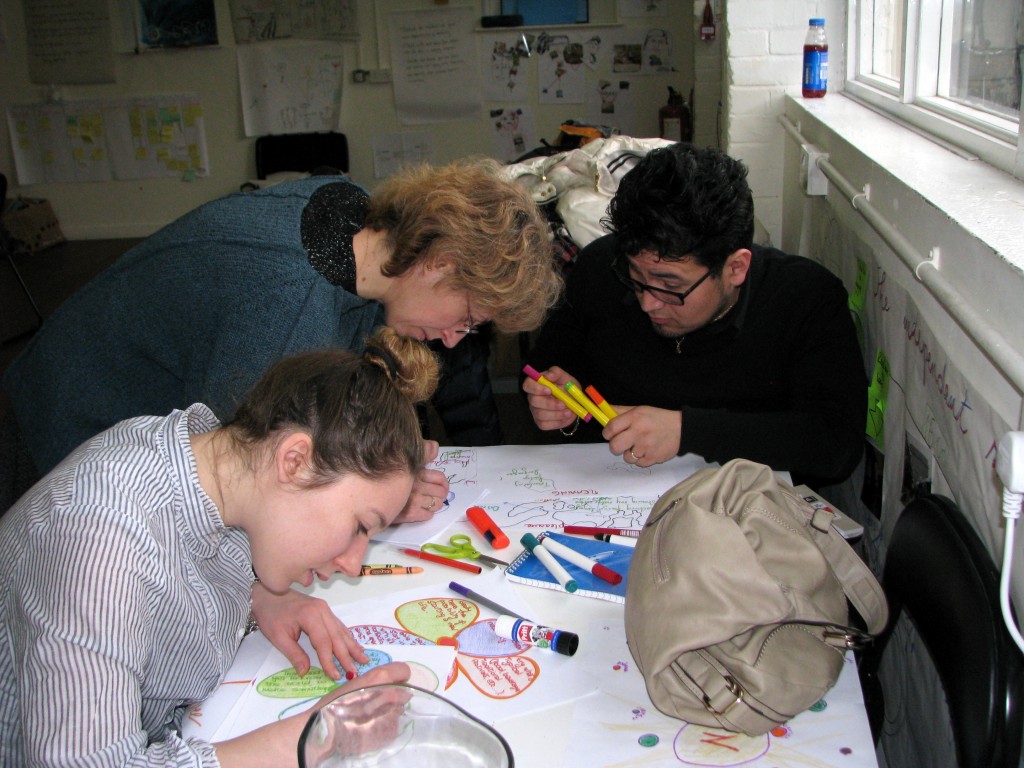Our First Training on Mobility in Cambridge
- training
- Apr 20, 2013
- 0 Comments
People from 7 different countries (South Korea, France, Argentina, Mexico, Spain, Italy, UK) met to attend our 5-day pilot course on intercultural adaptation in Cambridge in this April. The course has been developed in the frame of the “4C – Coaching for Cross Cultural Competences” Grundtvig project. The main aim of the training programme is to help people in mobility situations to better cope with difficulties inherent in border crossing.
The training was carried out in order to test our tools and methods that we developed with partners during the project. The methodology could later be used by professionals working with international students, migrants or adults with social mobility experiences. In other words, we aim to address simultaneously geographic mobility (such as going abroad for studies) as well as social mobility (for instance being the first person in the family to go to university). Herein lies the project’s innovation.

The workshop was structured into 5 days and each day addressed a new theme. The five mail themes included: questions of motivation, identity, intercultural skills, relational strategies and challenges. The training aimed for the practical approach, which encouraged active participation, creativity and interaction among participants. During the workshop participants used a range of creative methods that helped them to explore their motivations, needs, expectations and challenges connected to the cultural adaptation. The exercises included activities such as drama performance, drawing cartoons and social galaxies, undertaking an imaginary voyage to the unknown, and they were supported by interesting videos and sound affects.
The idea was to create a safe place in which participants could exchange their viewpoints and feel comfortable with sharing their thoughts. Not only does this help to establish a friendly atmosphere but it also contributes to stimulating environment in which everyone is able to learn something from their peers.
Through the process they could discover and become aware that they themselves already possess a lot of solutions and good ideas on how to face certain challenges that they come across while being abroad. The methods, such as forum theatre and the creation of cartoons, encouraged them to think of imagined alternatives for difficult situations which were then played and tried out in practice. During the five days there was also a time given for free time activities, which gave to the group additional time and opportunity to get to know each other as well as the surroundings. The training also included the field trip in which they got the chance to get to know the local culture in practice. This exercise also enabled them to reflect on their own mobility experience by discovering similarities and differences between the simulation of the field trip and their own mobility adventures.
On the last day participants gathered to evaluate their experience about the quality of the workshop, its contents, the organization etc. The general impression of the workshop was highly positive and during the process some real friendships were built.
The results from the evaluation also gave us lots of information that will be valuable in further development of the methods that will be used at the next training of professionals in Budapest.
See more: FOR BETTER MOBILITY EXPEREINCES – Trainer’s Training in Budapest (16-20 of September, 2013.)
If you are interested in our Mobility Trainings and Workshops find out more about our trainings.
